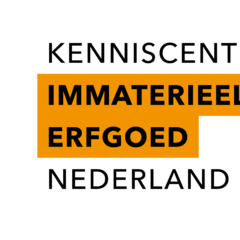West-Kruiskade is a super diverse neighborhood with more than 160 ethnicities. The intangible cultural heritage of the neighborhood presents itself in a number of public parties and activities that are visible in the neighborhood and with which the West-Kruiskade as a whole identifies itself as a super-diverse neighborhood. The intangible expressions of heritage include parties such as Keti Koti (the festival that also celebrates / commemorates the abolition of slavery in this neighborhood), various Afro-Surinamese rituals, the celebration of Rotterdam Chinese New Year and the diversity of food cultures in the West-Kruiskade .
Said feasts are (sometimes) also celebrated in other parts of the Netherlands (and the world). However, the interaction between a specific place and the specific population composition of West-Kruiskade gives the traditions a special context. Celebrating is something that you do together in a specific place where you live or live and therefore also determines the way in which people shape their traditions.
The working group on ICH in the West Kruiskade works as far as possible inclusively and wants to offer a platform for all intangible expressions of heritage that give the neighborhood its multicultural, super diverse character. The examples mentioned above are currently the most defining for the neighborhood, if new traditions with the same kind of appearance are introduced into the neighborhood then those traditions will also be incorporated.
Residents and visitors to the neighborhood West Kruiskade are of course part of the community. In an organizational sense, the entrepreneurs' association and idealistic foundations, such as the Shared past, shared future foundation, are particularly important. They organize the aforementioned activities in the public domain, with which so many people from the neighborhood identify themselves.
The registration has been prepared by the ICH working group of the West-Kruiskade Alliance, with people involved in an organizational sense or otherwise involved. are among the various forms of intangible cultural heritage in the West-Kruiskade: Jinai Looi, Fred Fitz-James, Guno Zwakke, Alice Fortes.
The multicultural character of the West-Kruiskade exists since the 1960s and 1970s. Due to nuisance and drug crime, the West Kruiskade Alliance was established, which focused on neighborhood improvement, including through ethnic entrepreneurship. Entrepreneurs and idealistic foundations from West-Kruiskade are committed to the multicultural nature of the neighborhood and also want to guarantee this diversity for the future.


